my friend is an alcoholic
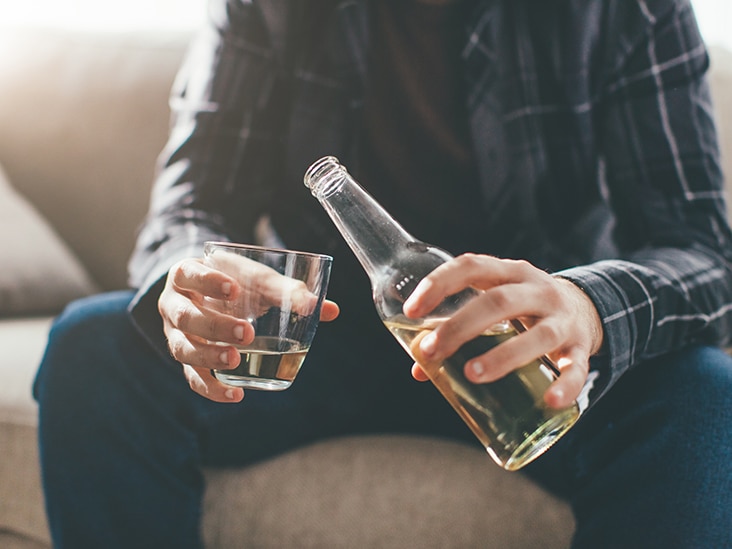 How Do I Know if My Best Friend is an Alcoholic? -New Roads Treatment
How Do I Know if My Best Friend is an Alcoholic? -New Roads TreatmentWill you help us give the gift of hope? Mental Health and Wellness Children and FamilyRelationsAgingMore★★★★★★★★★★ HelpGuide is a non-profit organization Our mission is to provide mental health content that you can use to help yourself and your loved ones. Help someone with a drinking problem Anyone you want to drink too much? Dealing with the abuse of alcohol or alcoholism of a loved one can be painful and challenging for the whole family, but there is help available. How Alcohol Abuse Affects Family and Friends Alcohol abuse and addiction (also known as "abolic disorder") not only affects the person who drinks, but also affects their families and loved ones. Seeing a friend or a family member struggling with a drinking problem can be as painful as it is frustrating. Your loved one may be disturbing your family life by neglecting your responsibilities, entering into financial and legal difficulties, or mistreating or even abusing you and other family members. Seeing the drink of your loved one and the deterioration of your relationship can trigger many distressing emotions, including shame, fear, anger and self-blame. The addiction of your loved one can even be so overwhelming that it seems easier to ignore it and pretend that nothing is wrong. But in the long term denying that it will only hurt you, your loved one with the problem, and the rest of your family. It's important to remember that you're not alone in your struggle. Alcoholism and alcohol abuse affect millions of people, all social classes, race, background and culture. But there's help available. Although you cannot do the hard work of overcoming addiction for your loved one, your patience, love and support can play a crucial role in your long-term recovery. With these guidelines, you can help relieve the suffering of your loved one, preserve your own mental health and well-being, and restore calm and stability to your family relationship and life. Recognizing the Signs of a Problem For many people, drinking is an ordinary part of life. In most places, it is legal and socially acceptable for an adult to enjoy an alcoholic beverage. But since the effects of alcohol vary from one person to another, it is not always easy to say when the intake of alcohol from a loved one has crossed the line of social drink responsible for alcohol abuse. There is no specific amount to indicate that someone has an alcohol consumption disorder. Rather, it is defined by how the drink affects the life of your loved one. In these difficult times of the global pandemic, economic uncertainty and high unemployment, many people are drinking more than they used to do in an attempt to relieve stress. Although it's easy to understand, that doesn't make it less of a concern. Consuming alcohol to cope with stress, dealing with difficulties or avoiding feeling bad, can be a sign that your loved one's drink has become a problem. Your loved one can also have a drinking problem if: If you that your loved one has a problem with alcohol, the first step to help you is to learn everything you can about addiction and alcohol abuse. When you've researched all the different types of self-help treatments and options open to them, you'll be ready to talk to your loved one about their drink and offer the support and resources they need. How to Talk to Someone About Your Drink It's not easy to talk to someone about your drink. You may be worried that if you raise your concerns, the person becomes angry, defensive, snatch, or simply deny that they have a problem. In fact, they are all common reactions. But that's not a reason to avoid saying anything. Your loved one's drink is not likely to get better by itself; it's more likely to get worse until you talk. Although it is important to be open and honest about your concerns, you need to remember that you cannot force someone to stop abusing alcohol. As much as you want, and as hard as it is to observe, you can't make someone stop drinking. The choice depends on them. What you can do, however, is to offer the steps you can take to — if that calls a helpline, talk to a doctor or counselor, get in treatment, or go to a group meeting. Tips to Talk to Someone About Your Drink Things to Help: Things to AVOID: Encourage Your Dear One to Get Help Don't expect your loved one to overcome a drinking problem alone. Even if they do not require medical supervision to retreat safely, they will still need support, guidance and new coping skills to stop drinking or cut. You can encourage your friend or family member to get help by: Your role does not end when your loved one agrees to seek help. Recovery is a continuous process, which requires time and patience. Someone who abuses alcohol will not magically become a different person when he is sober. In fact, they will face a series of new challenges. They will have to find new ways to live without alcohol and will also have to address the problems that led to their alcohol abuse in the first place. But with their continued support and love, they can get there. To leave or cut? Of course, not everyone who drinks too much is an alcoholic. Depending on the level of your loved one's problem—and how much control you have about your drink—can reduce your alcohol consumption to a healthier level rather than completely quit. If your loved one's goal is to reduce your drink, it can provide support by helping you set new realistic limits and ways to cling to those limits. For example, if your loved one commits at least two days a week when they do not drink at all, what will they do instead? In days they are allowed to drink, how will they adhere to the limits of healthy drink, not more than one drink a day for a woman, two drinks a day for a man? Help your loved one write their drinking goals and design strategies to adhere to them. This could include no longer drinking at home, taking a break between drinks, avoiding bad influences, and pursuing new interests and social groups that do not revolve around the drink. Treatment Options The best for your loved one depends to a large extent on the depth of your drinking problem, the stability of your living situation, and any other health problems you may be facing. The primary care physician of your loved one or GP can evaluate your drinking patterns, evaluate your overall health and any, and provide referrals to treatment. If appropriate, your loved one's doctor may even prescribe approved medicines to help treat alcohol dependence. Assisting a 12-step program or other support group is one of the most common treatment options for alcohol abuse and addiction. AA meetings and similar groups allow your loved one to spend time with others facing the same problems. In addition to reducing your sense of isolation, your loved one can receive advice on staying sober and unbridled to others who understand their first-hand struggles. Studies suggest that the social connection provided by these groups can help your loved one build confidence in their own ability to avoid alcohol in social situations and support their sobriety. Behavioral treatments include individual, group and family therapy sessions. These can help your loved one identify the root causes of your alcohol use, repair damaged relationships, develop skills to stop or reduce your drink, and learn to deal with the triggers of the drink that might cause you to relapse. Residential treatment or rehabilitation facilities provide intensive treatment for alcohol abuse or addiction. Your loved one resides in a special facility for 30 to 90 days and receives treatments such as detoxification, therapy and medication. Supporting the recovery of your loved oneRecovering alcoholism or a drinking problem can be a moving path. About half of the people who complete the treatment of alcohol abuse for the first time remain alcohol free, while the other half relapsed and returns to drink at some point. It is common for people to require treatment more than once to finally achieve sobriety. That means you will need a lot of patience in supporting the recovery of your loved one. Encourage your loved one to cultivate new interests. When someone spends a lot of time drinking (and recovering from drinking), leaving or cutting can leave a huge hole in their lives. Encourage your loved one to develop new pastimes and interests that do not involve drinking. Find things that can enrich and add meaning to your life, such as taking a class to learn something new; spending time in nature, hiking, camping or fishing; for a cause that is important to them; taking a sport; joining a club of pastimes; or pursuing the arts through painting, writing, or visiting museums. Suggest social activities that do not imply drinking. Although you cannot protect your loved one from situations where alcohol is present, you can avoid drinking with or around the person. When you spend time together, try to suggest activities that do not involve alcohol. Helping the person to address the problems that led them to drink. If your loved one drank due to boredom, anxiety or loneliness, for example, those problems will still be present once they are sober. Encourage the person to find healthier ways not to rely on alcohol. Don't activate the person. Power differs from helping when it protects the person from the consequences of his drink. Hidden bottles or strips, you assume your responsibilities, or offer financial assistance when you object to legal problems due to your drink. Helping them means demanding responsibility for the person's behavior and allowing them to maintain their sense of importance and dignity. Help them find healthier ways to cope with stress. Making an important life change by quitting or reducing alcohol can create stress. Similarly, excessive alcohol use is often a poorly healthy means of managing stress. You can help your loved one find healthier ways to reduce your level of stress by encouraging them to, trust others, meditate or adopt others. Get ready for relapse, but don't blame yourself. Help your loved one plan how to avoid the triggers to drink, deal with the cravings of alcohol and face in social situations where there is pressure to drink. You can help your loved one find ways to get distracted when the cravings hit — calling someone, going to walk, or coming out for the impulse, for example — but ultimately they are only responsible for their sobriety. The setbacks are common in recovery. If your loved one relapses, it's not your fault. All you can do is encourage the person to recommit to overcome his drinking problem and support them while trying again. With your help, they'll be there. Helping a teenager who's abusing alcohol than ever before. They are more likely to bind the drink and more vulnerable to the development of a disorder of alcohol consumption than adults. This can be because the center of pleasure of a mature teenager's brain before her ability to make healthy decisions. Whatever the reason for your drink, however, alcohol abuse may have long-lasting health effects for teens and often leads to, such as driving while it is deteriorated or having unprotected sex. As a parent or guardian, it is normal to feel fear, anger or confusion if you discover that your child is drinking. But it's important to remember that it still has an important impact on the decisions your child makes, especially during his previous and early years. Stay calm when you face your teen, and only do it when everyone is sober. Explain your concerns and make it clear that your concern comes from a place of love. It's important that your teen feels like you're a supporter. Monitor your teen's activity. He knows where his teenager goes and who he stays with. Remove or block the alcohol from your home and routinely review the possible hiding places for alcohol. Explain to your teen that this lack of privacy is a consequence of being caught using alcohol. Talk to your child about underlying problems. Many teenagers resort to alcohol to relieve stress, cope with pressures to adapt or succeed in school, or to cope with important life changes, such as a movement or divorce. Talk to your child about what's going on in your life. Develop rules and consequences. Your teenager should understand that drinking alcohol comes with specific consequences. But don't make hollow threats or set rules you can't enforce. Promote other social interests and activities. Exponga your teen to hobbies and healthy activities, such as team sports, Scouts and extracurricular clubs to discourage alcohol consumption. Get out of help. You don't have to go alone. Try looking for help from a sports coach, family doctor, or counselor. Take care. Dealing with the alcohol problem of a loved one can feel like an emotional roller coaster and take a heavy toll on your health, perspective and well-being. It is vital that you stay safe, take care of your own health and get the support you need. Don't try to face this on your own. It's important to have people who can speak honestly and openly with what you're going through. Turn to trusted friends, a support group, people in your community of faith, or your . A good place to start is by joining a group like Al-Anon, a peer-free support group for families who deal with alcohol abuse of a loved one. Listening to others facing the same challenges can serve as a tremendous source of comfort and support, and help you develop new tools to cope with. Alateen is a similar support group specifically for teenagers who have a family member who abuses alcohol. Do not neglect your own needs. Try not to let the behavior of your loved one dictate your own health and happiness. Program time on your day to relax, keep your own health and do the things you enjoy. The recovery of your loved one can be a long process, so you need to keep a balance in your life. He's still working, dating and social plans. Set limits. As much as you love the person with the drinking problem and as annoying as it can be to see them fight with their addiction, there is only so much you can do. You can't monitor your behavior all the time, make all your decisions for them, or allow your problems to make your life. You are not the therapist of your loved one or mentor of AA, so don't try to take on those responsibilities. To, set clear limits on what you are able to do. Handle stress. Worrying and stressing about your loved one can take a toll in your mind and body, so find ways to . Eating well, exercising regularly and sleeping well can help keep stress in control. You can also try one of the HelpGuide to help you stay calm and focused as you make this challenging journey. Authors: Lawrence Robinson and Melinda Smith, M.A.One of four people will fight mental health at some point in their life. And with the pandemic economy and coronavirus problems, many are in crisis right now. More than ever, people need a place of trust to resort to orientation and hope. That's our mission to HelpGuide. Our free online resources ensure that everyone can get the help they need when they need it, no matter what health insurance they have, where they live or what they can afford. But as a non-profit organization that does not issue advertisements or accepts corporate sponsorships, we need your help. If you've already contributed, thank you. If you have not, please consider helping us reach those who need it: Last Update: July 2020 Get more help (PDF) – Learn about treatment options and what you can do. (SAMHSA) – Tips to talk and support someone with a drinking problem. (MedlinePlus) – Front and assistance to a friend or family member who abuses alcohol. (AARP) Support organizations Most of these organizations have global chapters: – Support groups for friends and families of problem drinkers. – Learn more about the 12 steps of AA and find a support meeting in your area. – Organization similar to AA but without religious affiliation. – Organization dedicated to helping women overcome addictions. – Self-management and recovery training (SMART) is a program that aims to achieve abstinence through self-managed change. Support Services and Professional Resources In the United States: Call 1-800-662-4357 or search for .UK: Call Drinkline at 0300 123 1110, visit , or .Canada: Download for regional help lines and other resources. Australia: Call 1300 660 068, contact , or find regional . RelatedRelated Get our Newsletter Monthly Mental Health and Wellness TipsHELPGUIDEORG INTERNATIONAL is a tax-free organization 501(c)3 (ID #45-4510670). Our content does not constitute a medical or psychological consultation. See a certified mental or medical health professional for diagnosis. © 1999-2021 HelpGuide.org. All rights reserved.

My Best Friend Is an Alcoholic: What Should I Do? | Skywood Recovery
/early-signs-of-an-alcoholic-4062471_FINAL-6c91a8f79f0b45bdac3d059d3941a8b9.png)
Signs You're Dating an Alcoholic
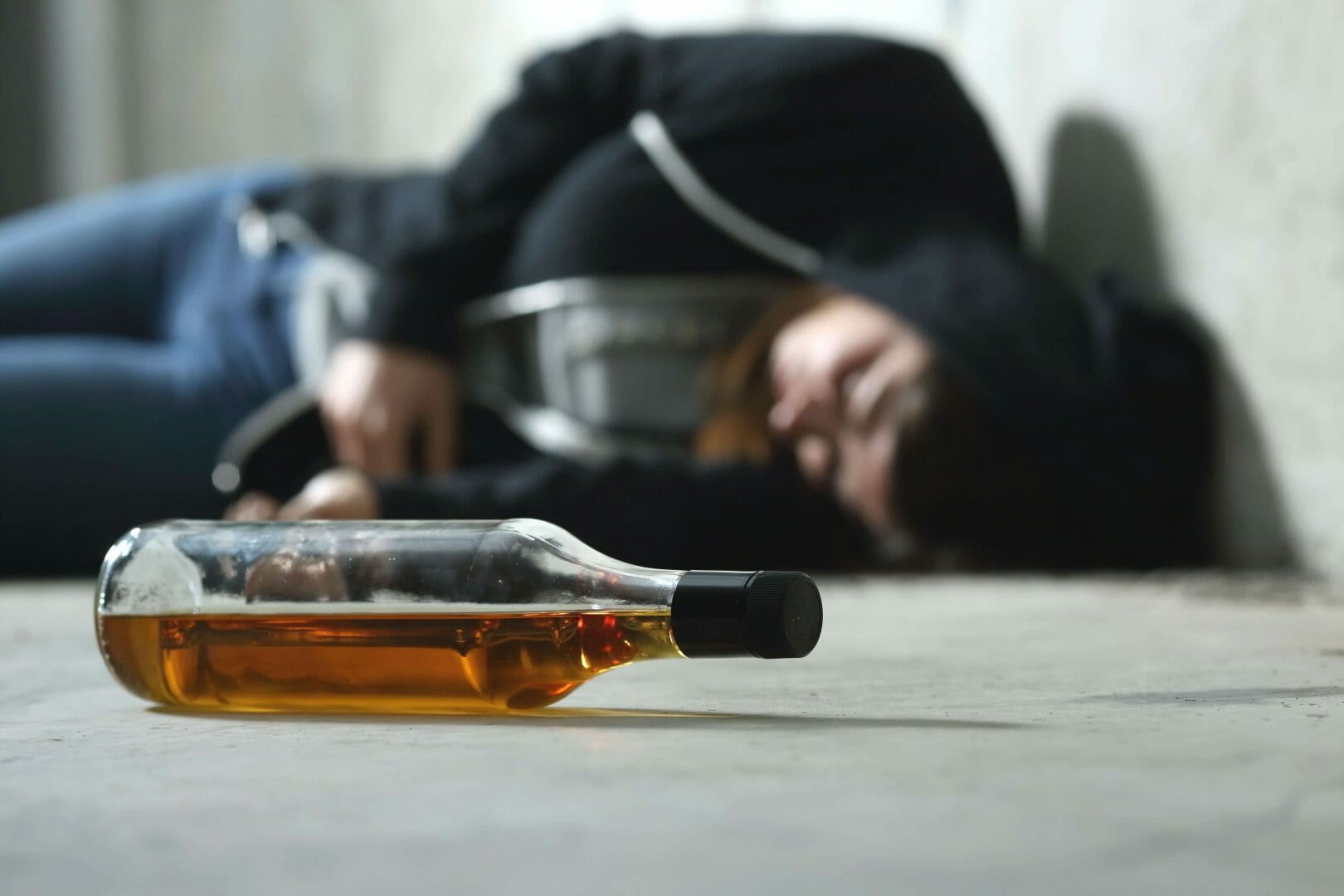
When intervention is needed: my best friend is an alcoholic | UK-Rehab

How to Help a High-Functioning Alcoholic | The Recovery Village
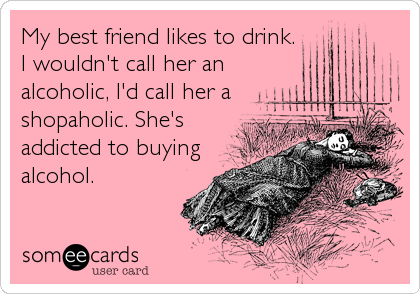
My best friend likes to drink. I wouldn't call her an alcoholic, I'd call her a shopaholic. She's addicted to buying alcohol. | Drinks/Happy Hour Ecard
/iStock_77464485_beer-bottles-579135695f9b58cdf3f88824.jpg)
Signs You're Dating an Alcoholic

dopl3r.com - Memes - Im not an alcoholic, but my best friend is, so when they drink, naturally, | do too, because Inm supportive like that.

Am I An Alcoholic? Casual Drinking vs. Alcoholism | The Recovery Village

Ask Polly: Should I Try to Help My Alcoholic Friend?

To My Alcoholic Friend - Her View From Home

The Most Important Things You Can Do To Help an Alcoholic

When intervention is needed: my best friend is an alcoholic | UK-Rehab
/alcohol-dementia-62980_final-9155b590ac9749fbadc70810f3c9414c.png)
An Overview of Alcoholic Dementia

Guide to Living With an Alcoholic | Dual Diagnosis

How to Help An Alcoholic Friend | Alcoholism Signs & What To Do

How to Help a High-Functioning Alcoholic | The Recovery Village

Almost Alcoholic - HelpGuide.org
/things-to-stop-if-you-love-an-alcoholic-67300-6c182f9a96a0478c8dc9aea02339dedb.png)
10 Things to Stop Doing If You Love an Alcoholic

How to Help an Alcoholic | Withdrawal, Support & Recovery

How to know if your friend is an alcoholic, and how to handle it

What Does Heavy Drinking Do to Your Body? | Keck Medicine of USC

An Open Letter To My Alcoholic Father | Letter to my boyfriend, Letter to my ex, Open letter

ALCOHOL IS MY FRIEND? Recognize symptoms, fight the problem of alcoholism, find the solution to be sober and change your life.: Curteldman, Jeremy: 9781703363029: Amazon.com: Books
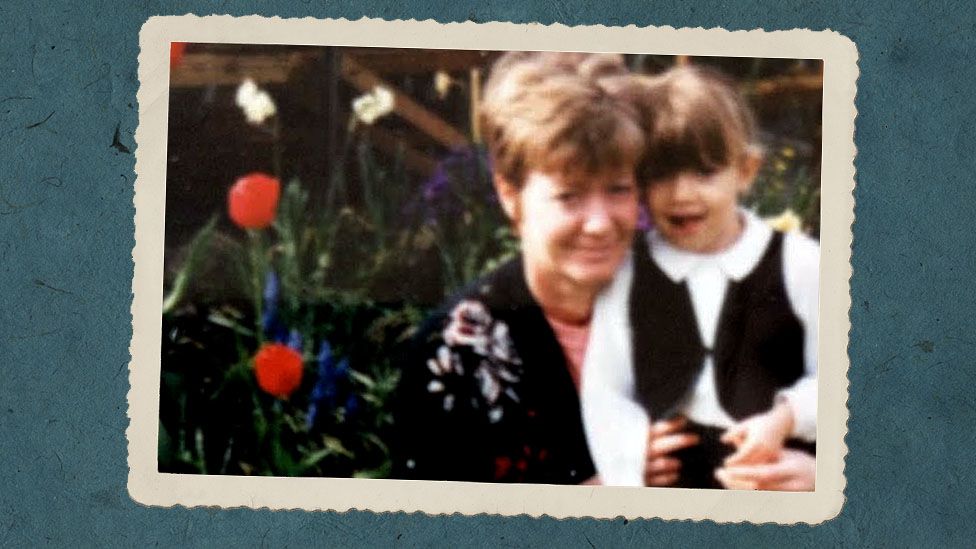
My mum was an alcoholic and it was a massive secret' - BBC News

How to know if your friend is an alcoholic, and how to handle it
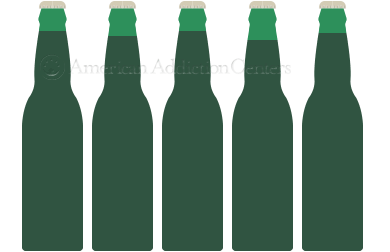
Children of Alcoholics - Alcoholism & Mental Health on Children

Im not an alcoholic, but my best friend is, so when she drinks, naturally I do too, because I'm supportive like that. - iFunny :)

I'm Not an Alcoholic Meme (Page 2) - Line.17QQ.com
Are You a "Weekend" Alcoholic? | Henry Ford LiveWell

Alcohol Is My New Best Friend by Jordan Kobo on Amazon Music - Amazon.com

Helping Someone with a Drinking Problem - HelpGuide.org

7 Not-So-Subtle Signs a Friend is Struggling with Alcoholism - DrugAbuse.com

Are You an Alcoholic? - WSJ

25+ Best Im Not an Alcoholic Memes | Spiritual Memes

Cheers to my friend | Aperitif, Alcoholic drinks, Brunch
The Day My Best Friend Became An Alcoholic | by Michal Bernolak | Medium
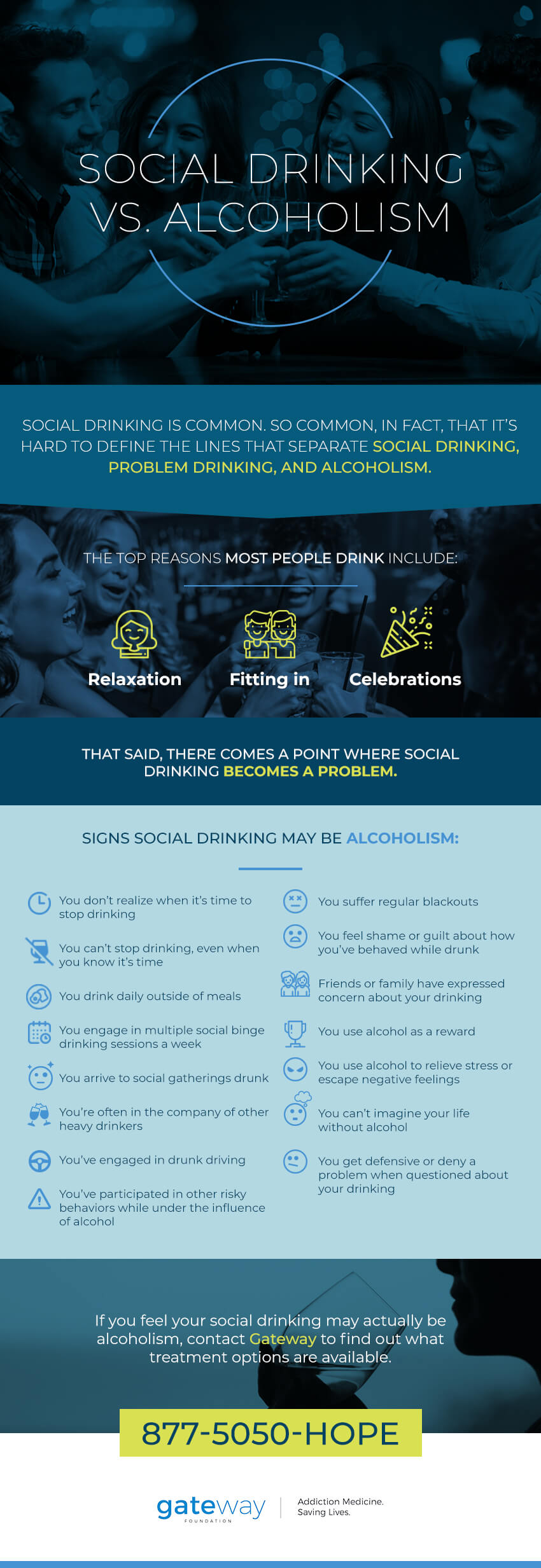
What is A Social Drinker? | Gateway Foundation

How Do I Know if My Best Friend is an Alcoholic? -New Roads Treatment

The Most Important Things You Can Do To Help an Alcoholic
Posting Komentar untuk "my friend is an alcoholic"